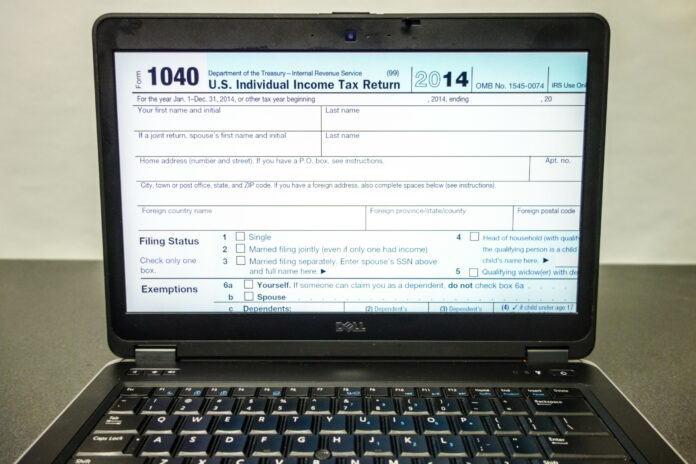As the tax deadline of April 15 approaches, many Americans are panicked.
But for Gen Z, the panic might be less about completing taxes themselves than getting their parents to handle the financial hassle for them.
According to a new survey from Cash App Taxes, more than half, 52 percent, of Gen Z said they expect their parents to help with tax filing. And 12 percent said they are going to make their parents do the entire filing for them.
As the youngest generation expected to file their taxes, Gen Z is likely more anxious about the process than their baby boomer, Gen X and even millennial elders. In the report, 54 percent of Gen Z-ers admitted the stress of filing taxes has brought them to tears, and one in four said they’ll need help from their therapist to recover from the experience.
Robert Barnes
“It’s clear that many Americans, but particularly younger filers, view filing their taxes as a confusing, anxiety-inducing experience that’s painful to navigate,” Erika Carney, the product lead for Cash App Taxes, said in a statement.
For younger workers, there continues to be confusion over the expectations around filing taxes. For example, 45 percent of Gen Z and 36 percent of millennials said they weren’t sure when taxes need to be filed, and 62 percent of first-time filers didn’t know where to get their W-2 or 1099 forms.
Only 24 percent of Gen Z surveyed said they planned to do taxes without any help, with the rest primarily leaning on family members.
Kevin Thompson, a financial planner and the founder and CEO of 9i Capital Group, said Gen Zers might not be depending on their parents because of economic strife or ignorance.
“Gen Z relying on parents to file their taxes is more a sign of convenience than anything else,” Thompson told Newsweek, adding that they generally go to their parents or family tax professional for money matters.
Thompson said most Gen Zers will have a relatively easy tax filing, especially if they take the standard deduction and don’t have a spouse or children. For many, that means free filing will be available via the IRS.gov or the free tools on TurboTax.
Despite the available tools, many Gen Zers might not be aware of them, and the intimidation around taxes can lead many to stress before the process even begins.
“While some may want to pin the blame on Gen Z being too lazy to handle their finances, I think this particular issue runs deeper than that,” Alex Beene, a financial literacy instructor for the state of Tennessee, told Newsweek. “While tax software and online services have made filing easier, there’s still a reputation of it being a complicated system that intimidates novices to how to do it.”
Many Gen Zers have taken on side hustles as well, and side income can add an extra layer of complexity to the tax filing process.
“I think it’s less of a reliance on parents and more of a fear of messing up when filing,” Beene said.
Michael Ryan, a finance expert who runs michaelryanmoney.com and said his own children rely on him to complete their taxes, said the stress of filing along with a widespread lack of financial education can push many young adults to seek help from their more experienced family members.
“The fear of penalties or audits can feel overwhelming, especially for those new to filing taxes,” Ryan told Newsweek.
But the reliance could go a bit deeper, as many young adults face soaring education costs, stagnant wages and an unaffordable housing market, Ryan said. In a recent Pew Research poll, only 45 percent of 18- to 34-year-olds considered themselves to be fully self-sufficient.
“I clearly remember the panic I felt filing taxes for the first time when I was in high school,” Ryan said. “The forms seemed like indecipherable code, and I desperately asked my dad, terrified of making mistakes. While his guidance was invaluable, I also recognized this as a wake-up call to take control of my own financial literacy.”
While Gen Z’s financial dependence on their parents may be understandable, Ryan said it underscores a larger need for better financial education starting in youth.
“By fostering tax literacy and self-sufficiency from an early age, we can ensure this generation builds a solid foundation for long-term financial wellness,” Ryan said.
Uncommon Knowledge
Newsweek is committed to challenging conventional wisdom and finding connections in the search for common ground.
Newsweek is committed to challenging conventional wisdom and finding connections in the search for common ground.


